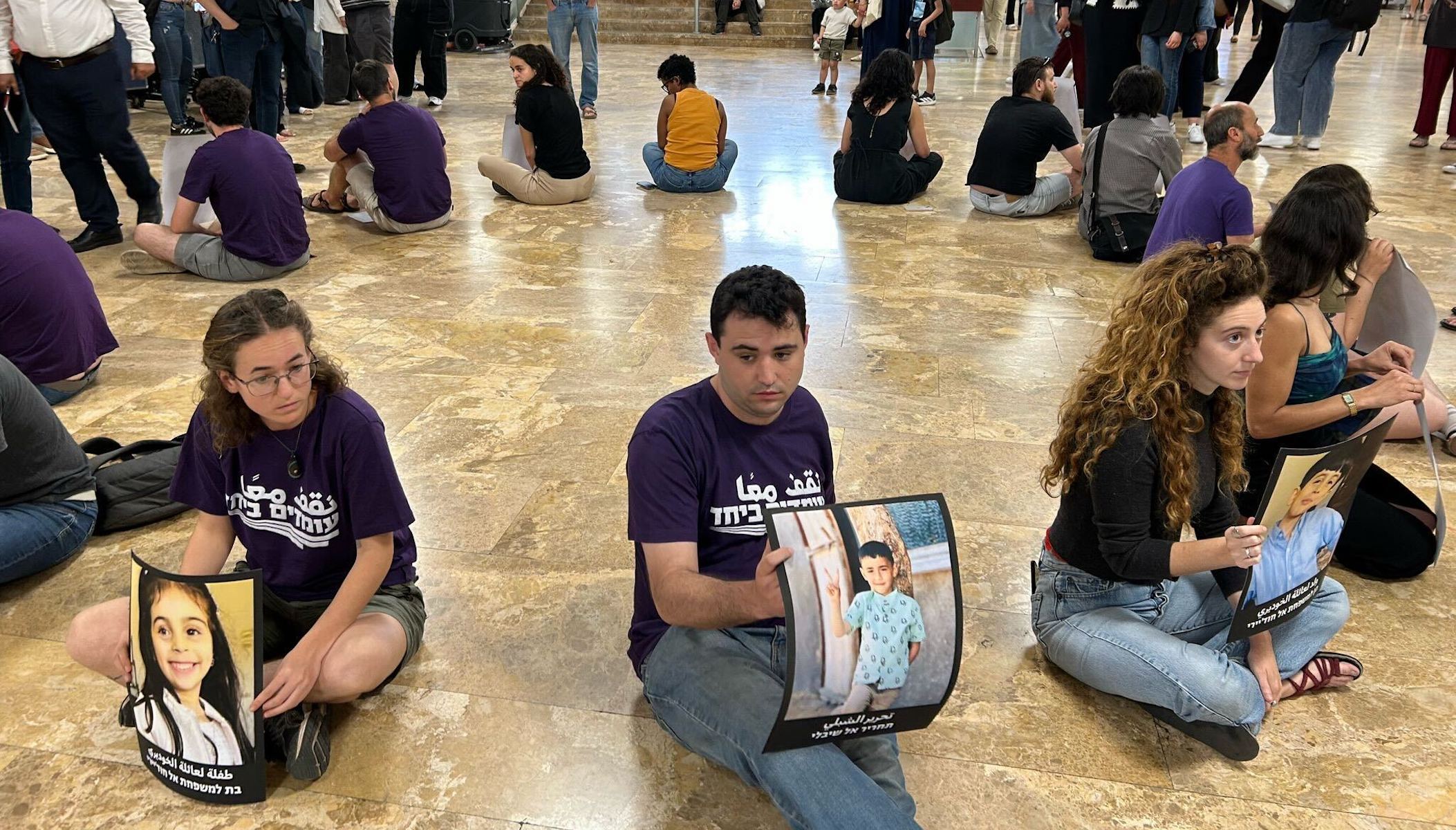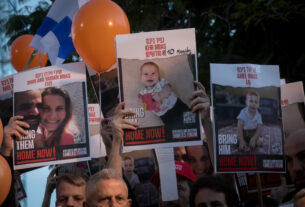Last week, at a university known for its diverse population, more than a dozen students sat on the floor of a campus building for 10 minutes holding photos of Palestinian children killed in the war in Gaza.
Five days later, their group was suspended through the end of the semester for staging an unauthorized protest.
It wasn’t in the Ivy League, and ICE agents weren’t about to raid the dorms. It was the latest dustup over the Gaza war at the University of Haifa, where Jewish and Arab Israeli students have at times clashed in ways that echo the campus drama in the United States.
The group that held the sit-in was the school’s chapter of Standing Together, the joint Jewish-Arab left-wing activist group. The group, which has emerged as one of the most prominent antiwar voices in Israel since Oct. 7, 2023, has faced criticism from Jewish Israelis who accuse it of betrayal and Palestinians who accuse it of normalizing Zionism.
Now, one of the student activists says the hammer has come down at Haifa over an action that felt so minor that the group didn’t even bother seeking a permit.
“It wasn’t a protest,” said Eliah Levin, a second-year University of Haifa student. “It was showing solidarity, but it was silent, it was peaceful.”
The protest occurred on April 23, the eve of Yom Hashoah, Israel’s Holocaust remembrance day, and was one of multiple demonstrations that week by Standing Together, according to Israeli media. A few days earlier, the Times of Israel reported, police had attempted to restrict protests such as the one in Haifa, but later allowed them to move forward.
The school said in a statement that the group had held two public demonstrations without prior authorization, including the sit-in event last Wednesday, which violated the school’s regulations.
“The university administration is committed to maintaining public order on campus and thus sees this violation as a very serious matter,” the school said in an emailed statement.
But Standing Together has rejected the university’s allegations, saying that while it did not seek permission prior to the sit-in, the activity did not warrant a permit because it was silent and still.
The Haifa protest drew opposition from Btsalmo, a right-wing activist group that filed a complaint with the university administration, according to the Israeli outlet Walla, and called for a permanent ban on Standing Together.
“An organization that chooses to publicly break the law and regulations and to incite against IDF soldiers who are their classmates should be shut down permanently,” said Btsalmo leader Shai Glick, according to Walla. “We will keep working to shut down and stop the incitement on campuses in general and the University of Haifa in particular.”
Days after the protest in Haifa, Btsalmo urged its followers to protest another action of Standing Together — nationwide screenings of a joint Israeli-Palestinian memorial ceremony. One of those protests erupted into a riot at a Reform synagogue in the Tel Aviv suburb of Raanana where protesters barged into the synagogue and injured attendees and police officers.
Alon-Lee Green, the co-director of Standing Together, said the punishment at Haifa was a challenge to due process and freedom of expression.
“Without any warning, without any hearing, without any process, we just got a letter announcing us that…we’re not allowed to continue to operate in the university until the end of the year,” said Green.
“They feel as if the democratic spaces are shrinking across the country, and now they’re also shrinking in the academic institutes, a place that should be the front of the discussion, of the academic discussion, but also of freedom of speech,” he added. “They feel as if it is also directed against the Palestinian students that were very much a part of this campaign.”
During the protest, Levin said several Palestinian students approached the activists to thank them for their solidarity.
“I heard a lot of Palestinian students coming up to us and saying thank you and appreciating it and seeing it as a very important act of solidarity and showing the pain of war and the price of war,” said Levin. “But the only voices that are allowed to be heard, both online and on campus, are the right wing voices, and so they are very loud and very aggressive.”
Tensions have flared in recent years at Haifa, whose campus enrolls the largest proportion of Arabs of any Israeli university. In January 2024, when the school re-admitted eight Arab students who had been suspended for posting “terrorist supporting” content on social media, some Jewish students protested the decision.
Levin said that her group regularly faces opposition from peers — many of whom have served as military reservists during the war. She said she understands their objections but that she remains committed to voicing her protest.
“I think for the Israeli students to walk past what we did and see that, I empathize [with] that, I think it’s hard,” said Levin. “It’s a time now where we have to get used to the fact that this is political. Voices will be heard. You can’t silence us anymore. And we’re going to have to learn how to live with this.”
Keep Jewish Stories in Focus.
(JEWISH REVIEW) has documented Jewish history in real-time for over a century. Keep our journalism strong by joining us in supporting independent, award-winning reporting.




